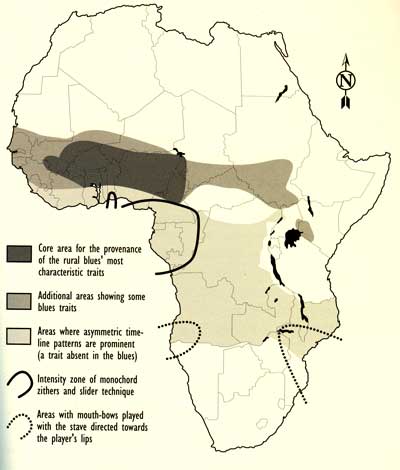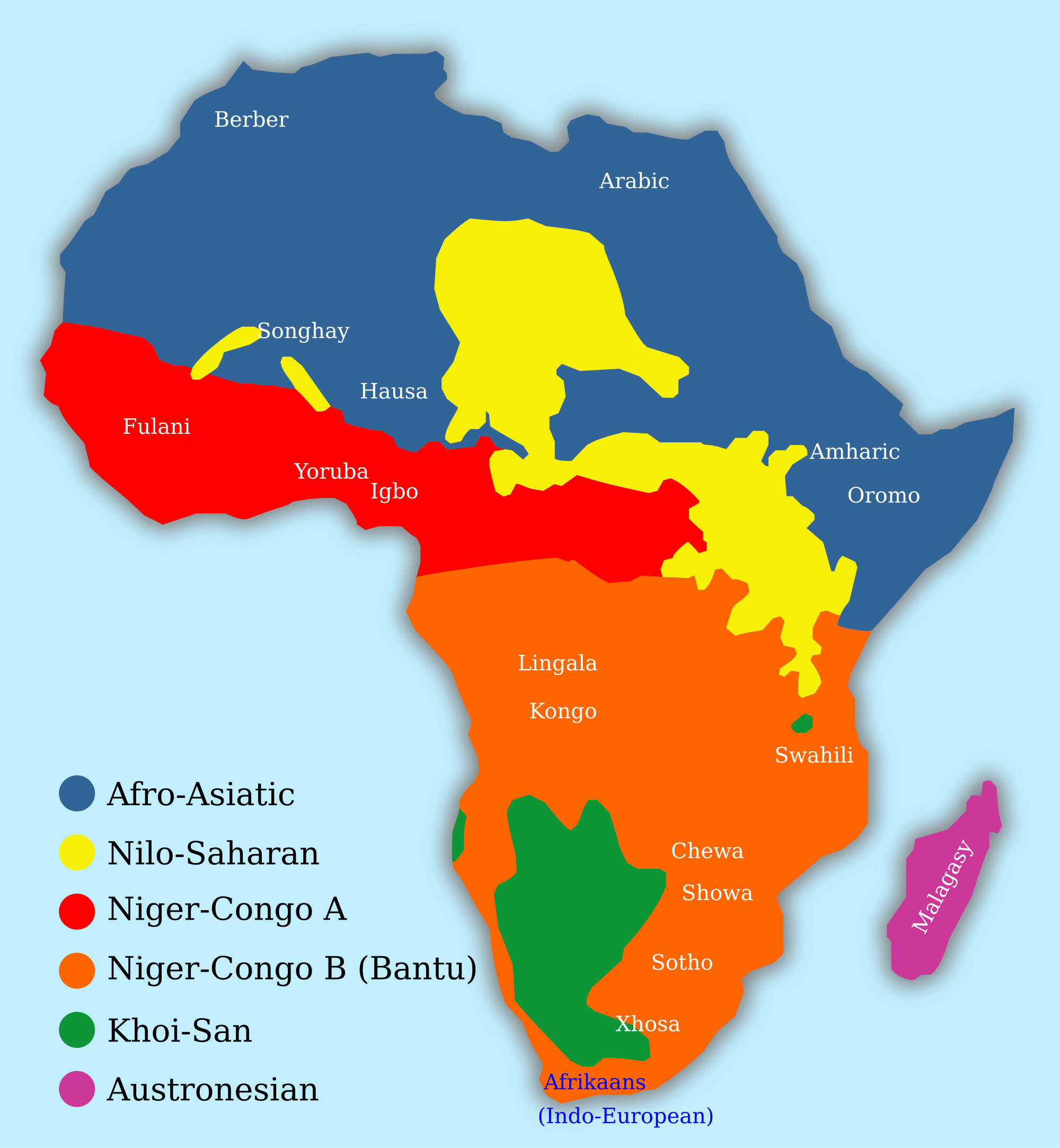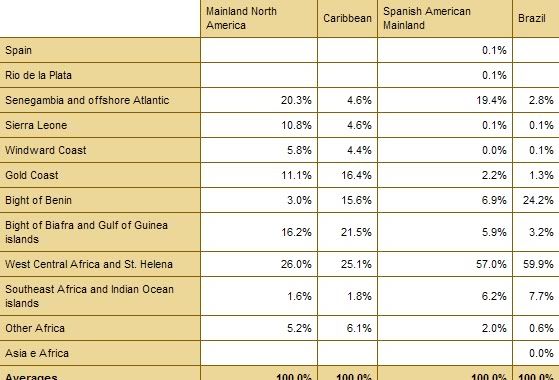The part of West Africa were the blues is rooted from(interior sahel/sudan/savanna) has for thousands of years been a hub for trading networks between sub saharan africa and north africa(southern sahara), and also were the first penetration of islam over a thousand years ago into sub saharan west africa comes from. Thus, IMO it represents a convergence of three major meta-cultural groups which influenced the musical tradition.
1. Native Sub Saharan West Sudanic(senegambians, gur, mande etc)
2. North African Saharan Berbers
3. West Asian Arabic
The cyclic & call and response form is most likely native to SSA, as it's also present in other SSA cultures in deep in the forested regions as well. The shuffled and swung rhythms could possibly be native Sudanic-Sahelian or North African Berber influenced. The melisma(syllables sung over multiple notes) and wavy intonation(notes moving between major and minor scale) are of Arabic Islamic influence, which when super imposed on the native African pentatonic scale, gets you the blues scale. Which is how you get microtonal 'blue notes' not present in the classical western musical notation. Those are just some of the traits. There are others African traits in the blues which will be hard to pin down to any one of those three particular cultural groups.
@IllmaticDelta or @Akan might need to review this hypothesis, though.
I don't think that the Arabs influenced that music. Do you mean Berbers? Berbers are not Arab; they are African.



 That shyt sounds Arab as fukk and it becomes very clear that they are some Arab nikkas and nothing like nikkas.
That shyt sounds Arab as fukk and it becomes very clear that they are some Arab nikkas and nothing like nikkas. 







